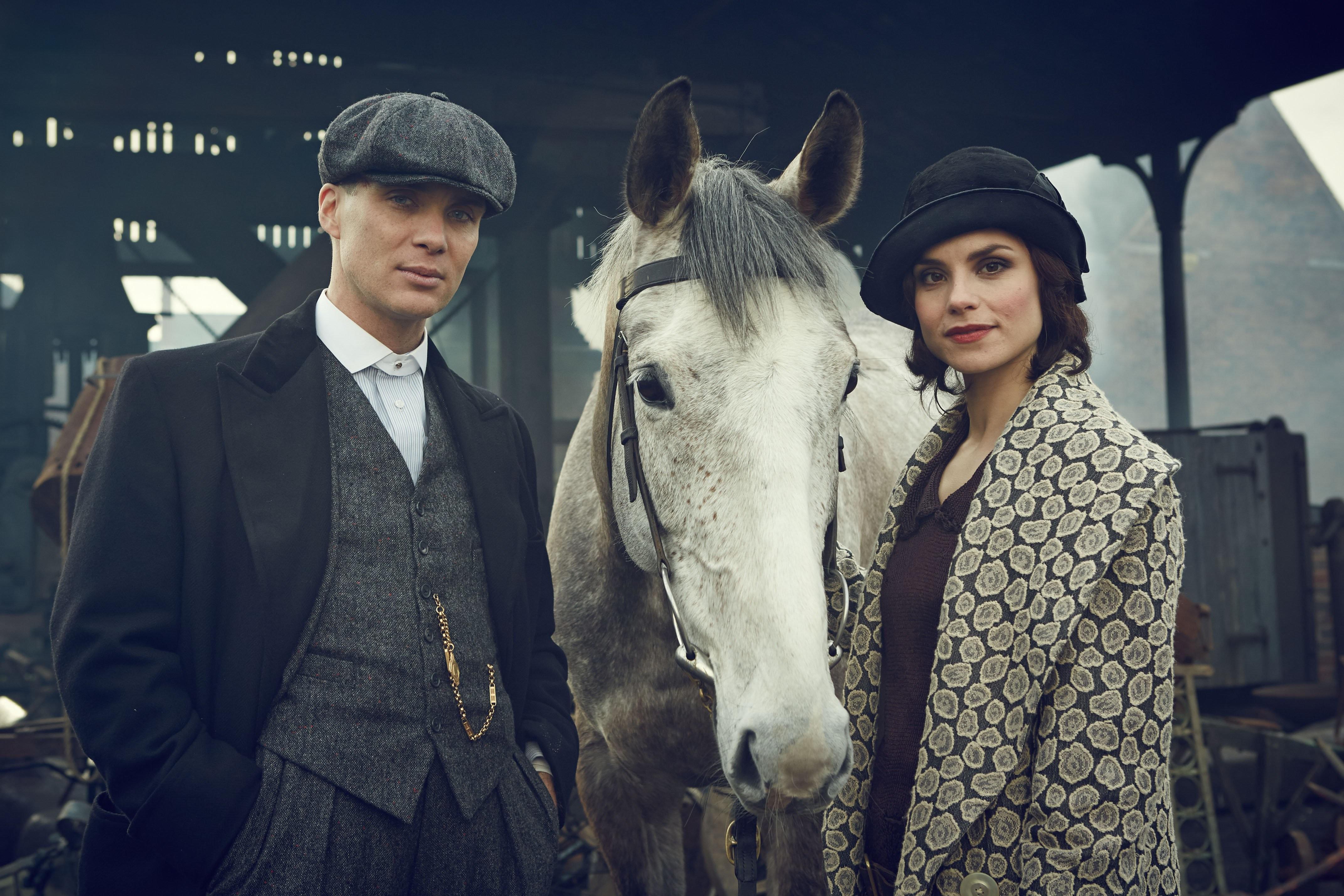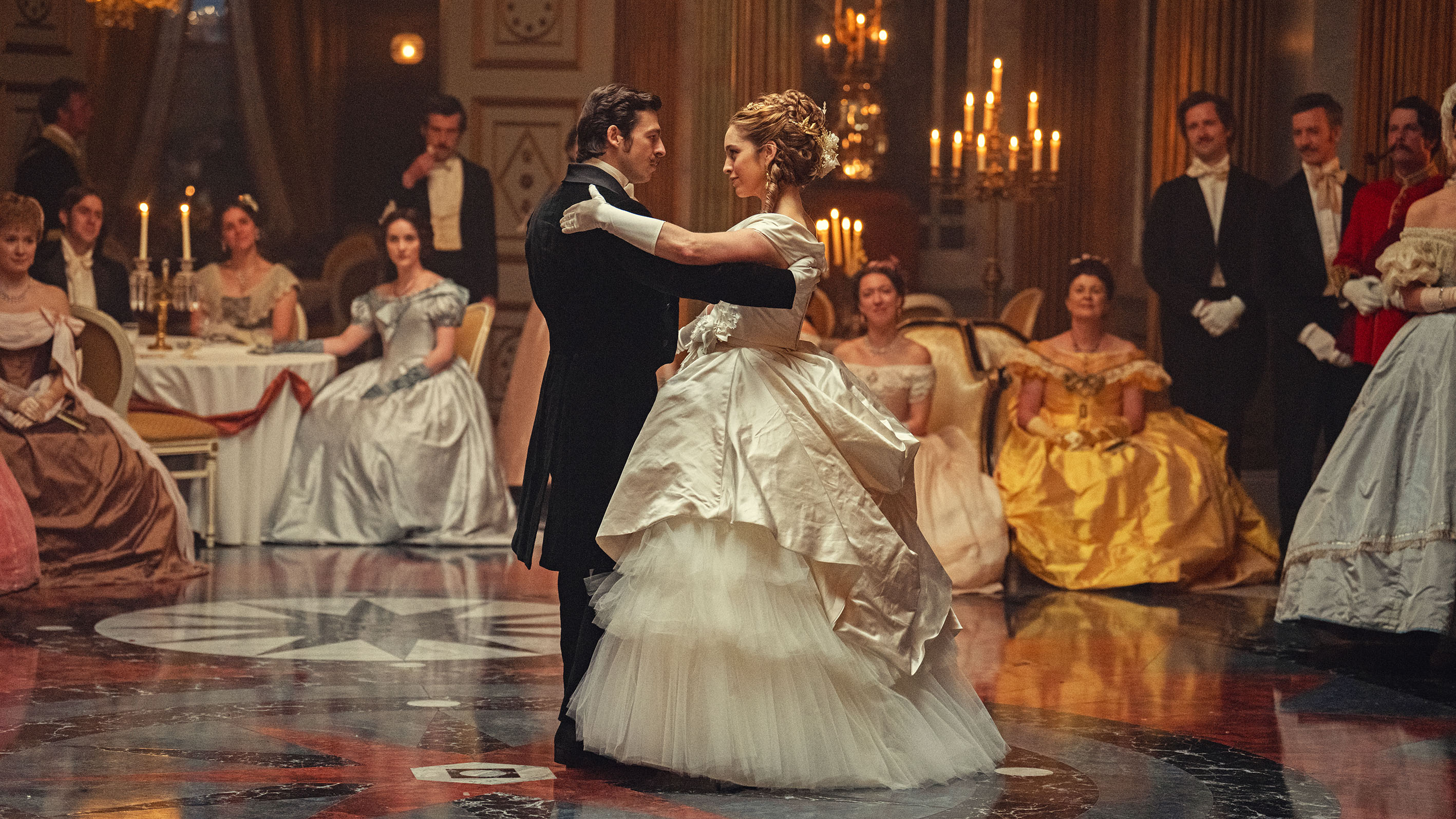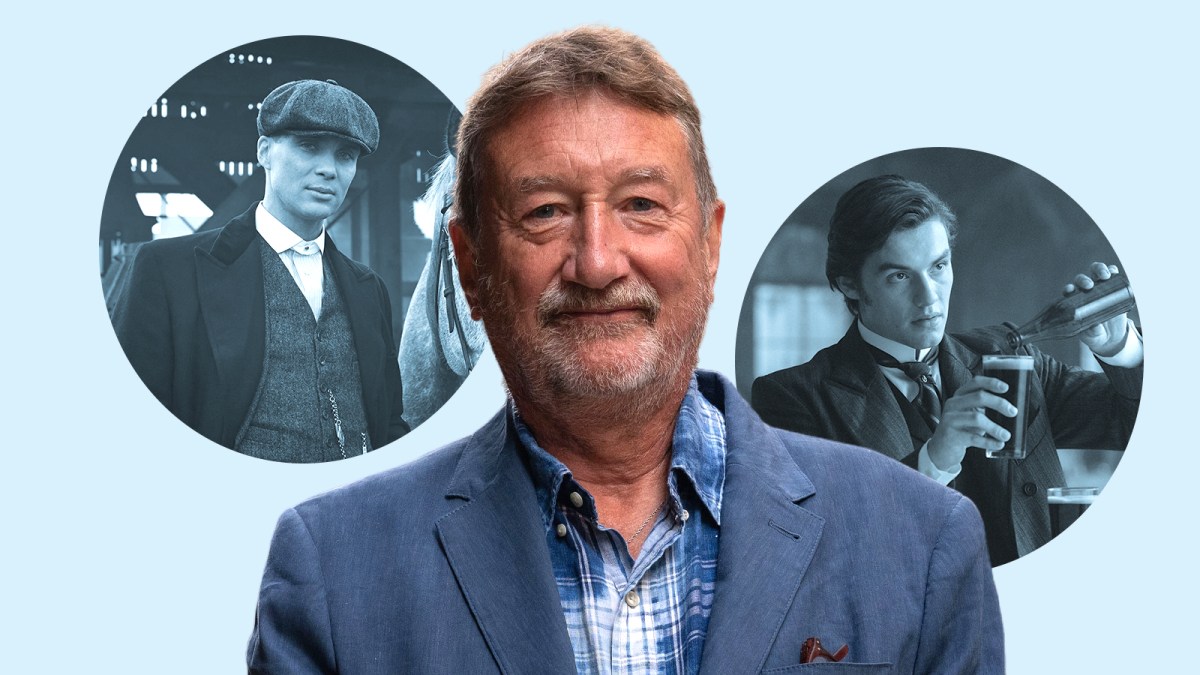“I’m fiercely loyal to Britain,” Steven Knight declares. “The things we’ve created, the inventiveness of our people, the way so much new stuff comes from here.” House of Guinness may open on a close-up shot of Ireland’s greatest export, but the man behind the new Netflix series is, figuratively, waving the red, white and blue.
“I love the people and their outlook. I love being here, I love it when it rains, I love it when it’s cold. I love that we’re aware of our own absurdities.” Knight pauses and then the connection with screenwriting comes. “I love that Britishness, which is a cross between Dad’s Army and SAS Rogue Heroes.”
Knight’s SAS Rogue Heroes took a wild ride through the Second World War — punctuated by violence, some sex and, jarringly but brilliantly, soundtracked with rock. House of Guinness, the reason we’re meeting in a five-star Soho hotel brasserie, takes a wild ride through 19th-century Dublin and is also punctuated by great violence, some sex and, jarringly but brilliantly, soundtracked with rock.

Cheers: Danielle Galligan and Anthony Boyle in House of Guinness
NETFLIX
You might recognise a pattern here; his Peaky Blinders did something very similar to the 1920s Midlands and became a global phenomenon. Consequently, Knight is one of the most fêted, and busy, screenwriters right now. As well as House of Guinness there’s a Peaky Blinders movie to finish and the screenplay for the next James Bond film, directed by Denis Villeneuve, to write.
• Peaky Blinders creator to write new James Bond film
There’s no sign of the pressure getting to him; the beard is clipped, his plaid shirt shows little sign of tummy bulge and I see no blue veins in the 66-year-old face. “You’ll never catch me in a gym,” he says when I ask how he keeps trim. “I’ve got a farm [in Gloucestershire], so I do a lot of walking and working with the animals.” Farming is not a fitness formula that’s worked for all television personalities. Knight orders tea with full fat milk; doesn’t he worry about his heart? “Worrying about your arteries is bad for your arteries.” Which feels like a line he might give 007.
It hasn’t all been unmitigated success. Serenity, the 2019 thriller with Anne Hathaway and Matthew McConaughey, which Knight wrote and directed, was widely panned. “I loved it, it’s one of my favourite films that I’ve done and it got terrible reviews,” he says, still bemused.
There was also some criticism of This Town, last year’s BBC series set in the West Midlands of the early 1980s. Then it won three Royal Television Society awards. “You can’t let bad reviews affect your work,” he says. “It would be like trying to play the piano while thinking about every single finger that you’re putting down.”

Cillian Murphy and Charlotte Riley in Peaky Blinders
BBC/ALAMY
Knight keeps the identity of his wife and seven children under wraps (he is also one of seven), but the Guinness family demands to be written about. Long mythologised, they are rumoured to have originated with Gaelic chiefdoms in medieval Ulster, or to have come to Ireland with Oliver Cromwell’s invasion forces. Whatever the truth, they have been on the up for centuries.
“They’ve always wanted to become aristocratic; at the same time, they are completely, in my opinion, aware of their own absurdity,” he says. “They know how bonkers this all is.”
The idea for House of Guinness came from Ivana Lowell, the 59-year-old scion of the brewing and banking clan, who saw Downton Abbey and reckoned her tumultuous family history could outdo it. Eventually Knight went to lunch with Lowell and was not a little enchanted by her ruffled aristocratic mien.
“She was sort of dotty; this ‘of course, darling’ stuff. She said, ‘All my relatives live in these huge houses, freezing cold, there’s no food in the house, there’s booze. Louis Theroux and his wife came to stay and after two days they went to the orchard to get some apples because no one had fed them.’ But they’d been offered champagne and gin.”
Lowell deserves her own Netflix drama. Sexually abused as a six-year-old, she suffered life-threatening burns after accidentally pulling a kettle of boiling water down on herself, and lost her 18-year-old sister, Natalya, to a heroin overdose. As does Lowell’s mother, the alcoholic author and artist’s muse Lady Caroline Blackwood, who scandalised society by her first marriage to the Jewish painter Lucian Freud. Or perhaps Lowell’s grandmother, Maureen, one of the “Glorious Guinness girls” of the 1920s, who wore a penis mask to parties and had a maid warm up the lavatory seat before she sat down.
Instead, House of Guinness begins in 1868 with the death of Sir Benjamin Guinness, the head of what was then the biggest brewery in the world, founded in 1759 by his grandfather Arthur Guinness. Which of his four adult offspring will benefit from the will?
• The heart of darkness inside the House of Guinness
The eldest son Arthur (Anthony Boyle) is keen to escape the responsibilities of business and enjoy his secret gay life. His brother Edward (Louis Partridge) longs to run Guinness himself and conquer the American beer market. Anne (Emily Fairn) is hoping to inherit anything that will deliver her from a stifling marriage to a ghastly clergyman, and the alcoholic youngest son Ben (Fionn O’Shea) mainly wants another drink.
Although the drama draws on the republican struggle to cast off British rule and the terrible effects of the Irish famine this, essentially, is Succession with stout. Not that Knight would know about that. “Make a list of all the big TV shows and films,” he says, “and I won’t have seen any.” Why won’t he watch? “Because if it’s good I think, ‘Oh, why can’t I do this?’ And if it’s bad, well, what’s the point?”

The House of Guinness tells the story of four heirs, one brewery and a battle for a family empire
NETFLIX
Happily, he does watch his own shows. The actors playing the siblings are pretty sensational and there are standout turns from Dervla Kirwan as a scheming aunt and James Norton as Sean Rafferty, the ultra-violent Guinness family enforcer who cudgels his way through Victorian Dublin (convincingly represented by Liverpool), cracking skulls and smashing jaws.
• Who’s who in the modern House of Guinness?
Like SAS Rogue Heroes, it might, I suggest, be slightly too violent, but Knight disagrees. “You can’t depict the glory of a victory over fascism without depicting violence; hopefully we all still believe that Nazis were bad and we were good. And with Guinness I feel it’s good people doing bad things for what they believe are good reasons.”
Among Rafferty’s other family duties is having sex with a wife of one of the brothers. Can such a character have existed? “Oh yeah, Rafferty’s real. The best stuff is always true.”
Knight is not just a screenwriter. He was the co-inventor of Who Wants to Be a Millionaire? and is developing a new game show. “It’s about halfway there and it’s really good,” he says, not wasting time on false modesty.
Then there’s farming in Gloucestershire where he lives among “the pink trouser brigade, great people” and has noticed that “the working class and the upper class can be very similar to each other. You know, have shared interests. Killing things. Eating things.” For a spell in the Nineties, he ran an independent brewery in west London. “Everybody says, ‘Oh, Hollywood is cut-throat’. Well, try getting into the brewing business. Jesus, it makes Hollywood look like a kindergarten.”
Knight is the son of a farrier and was brought up in a robustly proletarian atmosphere in Birmingham, “living in a small house with lots of siblings where there is a race for the cutlery and all of that stuff”. I suspect he counts his background as a sort of creative superpower. Nonetheless he got out of the Midlands, going to study English at UCL. Hitchhiking south, he was picked up, with screenwriter’s serendipity, by a Guinness lorry. “One ride all the way!’ he says, still chuffed by his luck.
If Birmingham made Knight, he has recently returned the favour, building a studio in Digbeth where the Peaky Blinders movie is being filmed. Birmingham is also the birthplace of the flag movement that’s draping England’s lamp posts in St George’s crosses. “I’m from a place where there are people who have those views,” he says. “I sort of understand it.”
• Peaky Blinders’ Tommy Shelby was a Birmingham City fan, says creator
He despairs of our thirst for social division, which he believes has blown across the Atlantic. “A lot of the stuff that is coming from America we should be picking up with rubber gloves because it’s toxic. That’s not us. I think if you’re loyal to Britain, you’re loyal to Britishness. And what Britishness has always been is a sense of humour, tolerance, getting on with it, and not glorifying the division. I don’t like this ‘they’re terrible, they’re awful, they’re the liberal elite, I hate them’ thing.”
Conversely, he’s also angered when people call the flag-wavers fascist. “We fought a whole war against fascism, so anyone who thinks that the Union Jack represents something other than resistance to that is wrong, in my opinion. When fascism was all over Europe, there was only one place where it wasn’t, and that was where the Union Jack was from.”
It’s all a little confusing but Knight has a solution. It doesn’t involve great violence and sex but does have room for rock music — we should celebrate British exceptionalism in culture with the same vigour the flaggers give to painting roundabouts.
“Creative nationalism is something I would absolutely be completely in favour of,” he says. “We can’t allow ourselves to start pretending that we’re like other people. We’re not. We have to be ourselves. That’s what we should be raising flags about: the Beatles, Rolling Stones, The Crown, our fantastic actors.” Perhaps Bond, whom Knight has recently said should be “bolder and stronger” in his new incarnation, can help to rescue Britishness — should he be on the list of things we celebrate? “Yes, of course.”
Writing a new 007 is, he says, “exciting and thrilling”. He isn’t allowed to reveal much more but Knight will set about this task with what seems a fantastically relaxed approach. He gets up before six — “that’s the best time because you’re still half dreaming” — sits down and just starts writing, confident the magic will come.
“I have no plan of how I’m going to get there,” he says of this technique. “Though I do know this character’s going to do this, this, and then they’re going to die, or they’re going to become king. So that’s the plan.”
And is there no fear associated with that? Villeneuve is waiting in Los Angeles for the first draft of the James Bond film … What if Knight climbs out of bed at the farm tomorrow morning, makes a pot of tea, sits down at his desk and nothing happens?
“Well, I touch wood something does happen. But I don’t fear the idea that it won’t. I don’t see it like that, it doesn’t feel like there’s a tank that is getting lower.”
Perhaps writing is a little like brewing? “Well, you could be glib and say it’s intoxicating but the thing with brewing is you brew the beer and then leave it alone, and sometimes that’s true of writing. It’s a very mysterious process.”
What have you enjoyed on television recently? Let us know in the comments below
House of Guinness will be on Netflix from Sep 25

